Rab Fulton's Blog, page 3
July 29, 2014
Social Justice & Scottish Independence. Part One
Over the next couple of weeks I'll be posting up a series of blogs looking at the issues of social justice and Scottish Indendence from 1979 to the present day. Enjoy!
1. An Imminent Catastrophe
If the No campaign propaganda is to believed, independence will result in Scotland physically detaching itself from the north eastern Atlantic archipelago that it has been part of for a long, long time. The very bedrock of the Scottish borders, formed 440 million years ago from layers of sediment in ancient shallow seas, will crack like a roasted yuletide nut. The soft hills of the southern lowlands, evidence of the glacial scouring 3 million years ago, will tear apart like thread bare sheets.
Having defied geology and physics the newly independent nation will then drift far from the civilisation until, reaching the end of world, the nation, its legislators and citizens will find themselves teetering on the edge of a vast and apocalyptic maelstrom. Like the foolish prince in the legend of the Corryvreckan whirlpool, the Scottish government will no doubt order three great ropes be made; one from hemp, one from wool and one from the hair of golden maidens. But despite great and heroic effort, particularly on the part of the golden maidens, the new nation will fail to anchor itself to this world. Instead it will plummet down and down into the darkest abyss and be lost for ever.
On calm reflection this would seem to be an unlikely scenario, yet it is one in keeping with the warnings and cries of alarm by Scottish Labour and the No campaign. Proof that an apocalyptic maelstrom awaits an independent Scotland is to be found just about everywhere, though only if, like a character from a Dan Brown novel, you know how to interpret the clues. The most recent ‘proof’ of a cataclysmic future for an independent Scotland was found by Labour Party in the recent remarks of the New European Commission chief Jean-Claude Juncker, who on taking up his new position had said that the EU needed to take a break from enlargement. This was immediately reread by the No campaign as a warning that Scotland will not be allowed into the EU. Indeed No campaign leader Douglas Alexander went a step further and declared Junker’s statement a ‘hammer blow’ against independence
Except, as with just about every warning against independence, the interpretation had no connection with reality. Firstly, Junker’s spokeswomen specifically denied that the remark had anything to do with Scotland. With the No Campaign refusing to back down, Scotland on Sunday reported that senior EU officials were adamant the remark had nothing to do with Scotland. Unlike countries seeking to join the EU, Scotland has been a part of the EU for four decades and is a signatory to and compliant with core EU requirements. Moreover, according to the Scotland on Sunday: ‘European Union chiefs are also thought to be angered by the prospect of the UK voting on an EU exit in the referendum planned by David Cameron and view Scotland’s desire to be a member favourably.’
So how did Labour come to this? To become no better than some carnaptious barfly ranting: dinnae, cannae, wullnae dae that!
Now read Part Two: Where to begin?
Follow me on twitter
* * *
There’s a wheen o Yes campaigns and campaigners out there on twitter. But you might want to check out these three to start with
@NewsnetScotland @bellacaledonia @WeAreNational
1. An Imminent Catastrophe
If the No campaign propaganda is to believed, independence will result in Scotland physically detaching itself from the north eastern Atlantic archipelago that it has been part of for a long, long time. The very bedrock of the Scottish borders, formed 440 million years ago from layers of sediment in ancient shallow seas, will crack like a roasted yuletide nut. The soft hills of the southern lowlands, evidence of the glacial scouring 3 million years ago, will tear apart like thread bare sheets.
Having defied geology and physics the newly independent nation will then drift far from the civilisation until, reaching the end of world, the nation, its legislators and citizens will find themselves teetering on the edge of a vast and apocalyptic maelstrom. Like the foolish prince in the legend of the Corryvreckan whirlpool, the Scottish government will no doubt order three great ropes be made; one from hemp, one from wool and one from the hair of golden maidens. But despite great and heroic effort, particularly on the part of the golden maidens, the new nation will fail to anchor itself to this world. Instead it will plummet down and down into the darkest abyss and be lost for ever.
On calm reflection this would seem to be an unlikely scenario, yet it is one in keeping with the warnings and cries of alarm by Scottish Labour and the No campaign. Proof that an apocalyptic maelstrom awaits an independent Scotland is to be found just about everywhere, though only if, like a character from a Dan Brown novel, you know how to interpret the clues. The most recent ‘proof’ of a cataclysmic future for an independent Scotland was found by Labour Party in the recent remarks of the New European Commission chief Jean-Claude Juncker, who on taking up his new position had said that the EU needed to take a break from enlargement. This was immediately reread by the No campaign as a warning that Scotland will not be allowed into the EU. Indeed No campaign leader Douglas Alexander went a step further and declared Junker’s statement a ‘hammer blow’ against independence
Except, as with just about every warning against independence, the interpretation had no connection with reality. Firstly, Junker’s spokeswomen specifically denied that the remark had anything to do with Scotland. With the No Campaign refusing to back down, Scotland on Sunday reported that senior EU officials were adamant the remark had nothing to do with Scotland. Unlike countries seeking to join the EU, Scotland has been a part of the EU for four decades and is a signatory to and compliant with core EU requirements. Moreover, according to the Scotland on Sunday: ‘European Union chiefs are also thought to be angered by the prospect of the UK voting on an EU exit in the referendum planned by David Cameron and view Scotland’s desire to be a member favourably.’
So how did Labour come to this? To become no better than some carnaptious barfly ranting: dinnae, cannae, wullnae dae that!
Now read Part Two: Where to begin?
Follow me on twitter
* * *
There’s a wheen o Yes campaigns and campaigners out there on twitter. But you might want to check out these three to start with
@NewsnetScotland @bellacaledonia @WeAreNational
Published on July 29, 2014 23:51
June 14, 2014
Help! My boys have set up a chemical weapons factory...
 It had to happen. My two boys – ages 4 and 6 years – have created a chemical weapons factory in the downstairs toilet.
It had to happen. My two boys – ages 4 and 6 years – have created a chemical weapons factory in the downstairs toilet. I was tidying upstairs. The sun was shining. I was sure the lads were out in the garden looking after the tadpoles. Then strange smells began to creep up the stairs, and curious sparking, bubbling sounds.
"Is everything all right down there lads?"
"Sure da‘."
A little later a commotion outside the front door alerted me to the fact that something unusual was happening. I popped my head out my office window and was astonished to see scores of children from our estate and the next estate all crammed into the front yard. And in the middle of this mob were ''my two children handing out cups and beakers and tubs, all filled with a smoking spitting greeny yellow substance.
"Lads! What’s going on down there?"
"Look da’. We’ve made poison and everybody wants some."
Well everybody likes their children to be popular, but this just felt way wrong.
"Look da’. Some of them have brought stuff to add to the poison."
By the time I ran down to the front door, the mob had doubled in size. There were even children there from the estate at the bottom of the hill. A ten year old boy was holding a can of fly spray: "Add this, go on, I bet you it makes it even more deadly." One little girl – two years of age if not younger – held up a dead slug and smiled. An older girl help up a battered doll: "it’s a corpse I brought for the poison."
There was a cough behind me and I turned around to be confronted by two boys and a girl, standing in my hall with mean looks on their face. "We’re security", said the girl. "Do you know the password?"
Outnumbered, I’ve retreated up the stairs to my writing room. There are more children out there, many bringing things to add to the batch of poison. I’ve no idea what to do: how to neutralise a chemical weapon production system was never included in the parenting classes I attended. I can hear a child shouting. ‘It works! Look at the cat twitching!’
I’m trying to focus on the positive. Just like the classes said; look for good things to praise in your children, not bad things to criticise. My children are being creative and they are sharing and they are making hundreds of new friends. They are all good things, surely?
Published on June 14, 2014 06:31
May 31, 2014
My blog interview with Nerine Dorman, fantasy author.
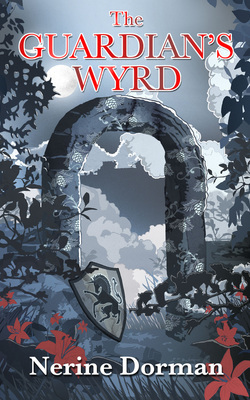 My blog visitor today is Nerine Dorman, the author of one of my favourite dark fantasy books ‘Inkarna’. Nerine is a writer from South Africa who also works as editor for Dark Continents Publishing, where she edited my novella Transformation. Nerine has a new ebook just published, ‘The Guardian’s Wyrd’, which is a magical fantasy story that will appeal to young readers as well as adults.
My blog visitor today is Nerine Dorman, the author of one of my favourite dark fantasy books ‘Inkarna’. Nerine is a writer from South Africa who also works as editor for Dark Continents Publishing, where she edited my novella Transformation. Nerine has a new ebook just published, ‘The Guardian’s Wyrd’, which is a magical fantasy story that will appeal to young readers as well as adults. [Rab] Your writing is not just filled with weird and freaky characters and happenings, but it also has great descriptions of South Africa, its cities, towns and landscapes. But yet again President Zuma has failed to appoint you Minister for Tourism, Culture and the Undead. Are you disappointed?
[Nerine] To be honest, I wouldn’t want that position for love or money, I’d prefer it if people just enjoyed my books. Travel writing is a bit of a sideline for me, that informs my writing. I love travelling, and have been all over, including Ireland, Mauritius and Zambia, as part of my repertoire of exotic destinations. I’ve been told that I really do evoke the settings well, so I know I’m doing something right. So it’s a natural extension for me to really live ‘in’ my settings when I write my fiction.
[Rab] Afrikaans is the world’s most cuddly culture. Discuss.
[Nerine] LOL! I wouldn’t exactly call Afrikaans folk the most cuddly, but I’m often gobsmacked by how people respond to us. Look at old Sharlto Copley, who was the protagonist in District 9 and also the antagonist in Elysium opposite Matt Damon. Face it, Afrikaans-speaking people make awesome villains. Personally, I think this might have something to do with South Africa’s past, when Afrikanerdom was synonymous with an oppressive regime. There is something really menacing about that police officer who’s mangling his “is” or “are”.
There’s a bit of a dark side to this for me, because I am, in fact, Afrikaans. I went to an English-speaking school and was often picked on for, among other things, being Afrikaans. So by the time I got to high school, I went out of my way to sound as English as possible. In later years, this wasn’t helped by the fact that I worked for a bunch of British ex-pats, for a few years, so I ended up with quite the British accent.
The weirdest part is that nowadays I’m a bit of a social chameleon (I think many South Africans of my generation are). I tend to reflect the accent of whomever I’m hanging out with, which gets odd when I’m hanging out with Americans. I think the Irish accent is just absolutely brilliant. Try as I might, I can’t pick it up.
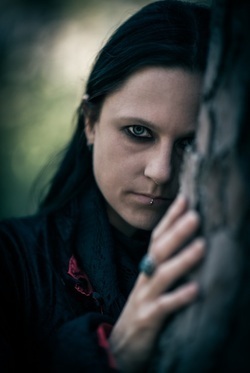 [Rab] Tell us about The Guardian's Wyrd
[Rab] Tell us about The Guardian's Wyrd[Nerine] If I have to wrap it in one sentence, I’d say this:
Teenage boy ends up having to rescue a prince from a magical realm.
The longer version is that this is a good, old-fashioned boy-hero saves the day kind of tale in which our protagonist unlocks his talents and rescues his best friend. There’s plenty of magic, travel through a magical realm and also dire challenges faced in dark tunnels between worlds. If you enjoyed Harry Potter, Narnia and The Neverending Story, then this might be right up your tree.
[Rab] Which dead writers of weird fiction would you most like to have a chat with on a dark and stormy night?
[Nerine] I’d have loved to have met Anne McCaffrey. She was a huge influence on me when I first started out writing and I was very sad when she passed. Likewise, I would have liked to meet Joseph Campbell. He might not have been a writer, but I’ve listened to some of his lectures, and I am very influenced by his observations on mythology and stories. Of course JRR Tolkien, though I hear he wasn’t always a great lecturer.
[Rab] Do different elements of your identity – Woman writer, African writer, Afrikaans writer, etc - shape the realm of your imagination?
[Nerine] I hate boxes when it comes to fiction. I write stories. Okay, the topic of “African” writer does get my blood up a bit because it’s not an inclusive term. I’ve experimented with this and found that the moment I up the “African” elements on some of my shorter-form fiction, there’s almost automatically more interest. Yet the opposite with the novels. Unless I put elephants and giraffes, I’ve been told I’m not “African” enough.
And I’ve picked up enough that there’s resistance to Africa as a setting for commercial fiction. I don’t know if it’s reader resistance to the location or publishers worried that the books won’t sell. I don’t know. My feeling is if I, as an African, can read books set in New Orleans or Dublin, why can’t readers enjoy books set in Cape Town, if I make sure my world-building is solid enough to make them feel like they’re on familiar turf.
But I’m not going to get all whiny and wangsty about it. I will continue to write stories. Some of them will be in Cape Town. Some of them in the Karoo. Hell, some might be in New Orleans or magical realms you’ve never heard of before. Point is I have stories to tell, and I refuse to be boxed in.
[Rab] How do stories come to you? What can spark a story off? Do you know the ending and then work your way towards it, or is it a character that shapes the story. Or is it something totally different?
[Nerine] I like knowing where a story will end when I start it, that much is for certain. Often I’ll be daydreaming, or I’ll be looking at pictures when a serious “what if” moment slaps me upside the head. I’ll get a pencil in hand, find a scrap of paper, and off I go. I have a “Fresh Ideas” folder in my Google Drive where I’ve collected dozens of ideas, so I won’t ever run out of things to write about. The real challenge is finding the time. Sometimes I start with a character. Sometimes a visual, but the creative process is always fluid. Once again, I try not to box things in and always do things in a certain way.
For more on Nerine check out her Website • Twitter • Blog and Sign up for her mailing list.
Purchase her new book at ‘The Guardian’s Wyrd’
Published on May 31, 2014 22:56
May 16, 2014
I need help finding images & sounds for my blog novel.
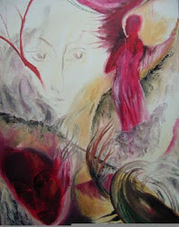 illustration by Marina WIld for front of blog novel Now that my blog novel Marcus Marcus and the Hurting Heart is finished, I’ve been having fun randomly adding images and sounds to chapters to make the online story more tactile and interactive.
illustration by Marina WIld for front of blog novel Now that my blog novel Marcus Marcus and the Hurting Heart is finished, I’ve been having fun randomly adding images and sounds to chapters to make the online story more tactile and interactive. The story has love, terror, spaceships, weird creatures, myths, prayers, demons, monsters, battles and lots of other cool stuff.
In some chapters I’ve simply added pictures. In others I've added thinga that are a bit more weird and freaky like the blood clip in chapter five or the Saturn radio emission clip in chapter 48.
If readers of the blog have any suggested images or sounds they’d like to add please drop me a line at rabful@gmail.com. Include your name, details of the image or sound and any links you’d like me to mention.
 Image by Tim White that I use in Chapter 38 The chapters that already have images and/or sounds added are listed below. They’ll give you an idea of what I’m up to:
Image by Tim White that I use in Chapter 38 The chapters that already have images and/or sounds added are listed below. They’ll give you an idea of what I’m up to:Chapter One - posted 18th November 2010
Chapter Two - posted 25th November 2010
Chapter Three -posted 2nd December 2010
Chapter Four - posted 9th December 2010
Chapter Five - posted 16th December 2010
Chapter Six - posted 30th December 2010
Chapter Eleven - posted 1st March 2011
Chapter Thirty-eight. Posted 25th December 2013
Chapter Forty-eight - posted 30th April 2014
Chapter Forty-nine – posted 6th May 2014
Many thanks :-)
Published on May 16, 2014 09:24
January 19, 2014
Jailing of Irish feminist, writer and social justice activist
As one many people who has been supported as a writer and campaigner by
Margaretta D’arcy
I was shocked to learn the news that she had been taken to prison last week.
Margaretta D’arcy, feminist, writer and social justice campaigner, began a three month jail sentence after she refused to sign a bond that would have prevented her carrying on her campaign to highlight the abuse of Irish neutrality that is ongoing in Shannon airport.
The letters in last week’s Irish Times provide a good sample of the volume of local and international outrage at her arrest and imprisonment (see Irish Times letters).
I would like to add my voice to those expressing their shock at her arrest and demand her immediate release and fully support the recent statement by the Global Woman’s Strike calling for Margaretta’s release (see statement below).
Statement to the Press and the Public by the Global Women’s Strike
We are outraged to learn that our dear sister and colleague Margaretta D’Arcy has been jailed – and for three months! – for protesting the use of the civilian airport at Shannon for US wars. And we are deeply worried about her health and well-being as a cancer patient. One of the many public services Ms D’Arcy has performed is to protest the Irish government’s many years of complicity in US war crimes and its destruction of Irish neutrality. She has been dedicated to highlighting that the most devastating impact of war is on women and our children, both directly from the bombs that rain down on us, and by paying with our poverty for the horrendous weapons of massive destruction that surround us all.
Ms D’Arcy is a veteran of Greenham Common Women’s Peace Camp, which opposed the US military placing cruise missiles on common land in England, and won – the camp is no longer a military base. To dissent from a perspective of permanent war and austerity, and demand the protection of life and the planet, is increasingly labelled subversive and even criminal behaviour. While war criminals are allowed to pass through Irish airports and financial criminals go unpunished, the Irish State in thrall to the US, UK, EU and IMF Masters of War has imprisoned a pensioner who has dedicated herself to highlighting and preventing war crimes.
An attack on courageous and principled Margaretta D’Arcy is an attack on us all.
We demand the immediate release of Margaretta D’Arcy.
Selma James
Global Women’s Strike
Maggie Ronayne
Global Women’s Strike, Ireland
Margaretta D’arcy, feminist, writer and social justice campaigner, began a three month jail sentence after she refused to sign a bond that would have prevented her carrying on her campaign to highlight the abuse of Irish neutrality that is ongoing in Shannon airport.
The letters in last week’s Irish Times provide a good sample of the volume of local and international outrage at her arrest and imprisonment (see Irish Times letters).
I would like to add my voice to those expressing their shock at her arrest and demand her immediate release and fully support the recent statement by the Global Woman’s Strike calling for Margaretta’s release (see statement below).
Statement to the Press and the Public by the Global Women’s Strike
We are outraged to learn that our dear sister and colleague Margaretta D’Arcy has been jailed – and for three months! – for protesting the use of the civilian airport at Shannon for US wars. And we are deeply worried about her health and well-being as a cancer patient. One of the many public services Ms D’Arcy has performed is to protest the Irish government’s many years of complicity in US war crimes and its destruction of Irish neutrality. She has been dedicated to highlighting that the most devastating impact of war is on women and our children, both directly from the bombs that rain down on us, and by paying with our poverty for the horrendous weapons of massive destruction that surround us all.
Ms D’Arcy is a veteran of Greenham Common Women’s Peace Camp, which opposed the US military placing cruise missiles on common land in England, and won – the camp is no longer a military base. To dissent from a perspective of permanent war and austerity, and demand the protection of life and the planet, is increasingly labelled subversive and even criminal behaviour. While war criminals are allowed to pass through Irish airports and financial criminals go unpunished, the Irish State in thrall to the US, UK, EU and IMF Masters of War has imprisoned a pensioner who has dedicated herself to highlighting and preventing war crimes.
An attack on courageous and principled Margaretta D’Arcy is an attack on us all.
We demand the immediate release of Margaretta D’Arcy.
Selma James
Global Women’s Strike
Maggie Ronayne
Global Women’s Strike, Ireland
Published on January 19, 2014 06:19
November 15, 2013
Blog novel almost finished...
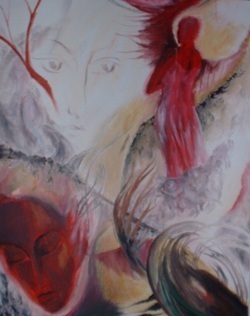 My blog novel 'Marcus Marcus and the Hurting Heart' is now in its
My blog novel 'Marcus Marcus and the Hurting Heart' is now in itsclosing stages. Another six or seven chapters and the story will reach its blood soaked finale. The final chapter will be posted on Christmas Day.
The story was originally commissioned for the 2011 Múscailt Arts
Festival in Galway. The plan was that I would write a long adventure story for adults, which would be posted online during the festival. However the story soon evolved into something far more substantial. It became the ongoing dark blog novel:
http://marcusmarcusthehurtingheart.blogspot.ie/
As it happened the Múscailt commission was followed by a welcome increase in the amount of commissions I received for written and performance work (for details see
http://rabfultonstories.weebly.com/). This meant that poor Marcus
Marcus was put on hold on a number occasions, usually just as he was faced with imminent death or betrayal or dancing girls... Curiously enough the forced breaks, when I was frantically working on another project, allowed me the time think slowly and deeply about the story.
The story line has never changed since it first popped into my head back in the autumn of 2010. However, reflection and pause gave me time to bring in deeper and subtler aspects. Of course, the blog by the very nature of its medium is very much a rough draft - yet there is plenty to enjoy and be thrilled about. Though it is certainly not a story for the faint hearted.
The final chapter will be posted on Christmas day. Then I'll relax, enjoy the holiday, and in January begin polishing the work into shape for publication as a book in 2014. And then of course I'll begin writing the second installment...
Enjoy!
Published on November 15, 2013 07:26
August 9, 2013
Celtic Tales & Oscar Wilde
 I will be back telling Celtic Tales in The Cottage Bar this thursday, 8th August, and will be telling stories until the 31st October.
I will be back telling Celtic Tales in The Cottage Bar this thursday, 8th August, and will be telling stories until the 31st October. As well as new and old stories i will also be doing something a little different. During August I will be performing preview extracts from Oscar Wilde's last work The Ballad of Reading Gaol. I will be performing the full poem in the Town Hall Theatre on 7th September.
Storytelling is one of the oldest and most powerful ways of sharing wonder, laughter and amazement, of transporting your head, heart and soul to new and incredible dimensions. However, stories can also shine a light on the darker truths of the world around us. The tale Oscar Wilde tells in The Ballad of Reading Gaol is as haunting and troubling as it is beautiful and passionate.
Oscar Wilde wrote the poem in a matter of months while in exile in France after his release from prison in 1897. During his two years in prison, a man was hanged for killing his wife. The poem’s most famous lines “Yet each man kills the thing he loves” were inspired by this incident. As preperation for my performance of the poem I have began writing up some thoughts on it in Goodreads
For details on the Town Hall Show see The Ballad of Reading Gaol
For details on my thursday storytelling sessions see Celtic Tales
Published on August 09, 2013 13:24
July 8, 2013
The Book Launch in words and photos
The evening began with me trying push my way into the room the launch of Galway Bay Folk Tales was to take place in. By eight o'clock the room was bursting and more people were queuing up outside the Cottage Bar. When twenty five Canadians joined the queue Fionnuala Gallagher, compere of the event, decided enough was enough. After a quick chat with Liza behind the bar it was decided to move the event out to the beer garden. So off we all went with Marina and I pointing directions. 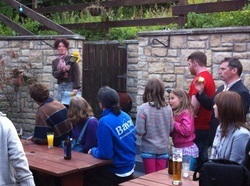 Fionnuala declaims... The rain and mist that had been hanging around all week cleared up. It was cool but beautiful summer evening. More men, women and children joined us but the beer garden was big enough for us all. Fionnuala Gallagher began the evening by giving a wonderful talk about being a witness to the frantic creation of the book and its illustrations
Fionnuala declaims... The rain and mist that had been hanging around all week cleared up. It was cool but beautiful summer evening. More men, women and children joined us but the beer garden was big enough for us all. Fionnuala Gallagher began the evening by giving a wonderful talk about being a witness to the frantic creation of the book and its illustrations
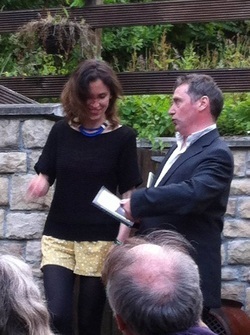 Rab introduces Marina Having been awoken by my boys at 4 in the morning I was borderline deranged with sleep deprivation by the time it came for me to get up and entertain. But after a quick stimulant (in the form of an apple) up i went and performed a mixture of reading, telling and improvisation. I remembered to introduce Marina to the crowd and managed not to get too distracted by a smoke grey cat that walked along the overhang of the beer garden.
Rab introduces Marina Having been awoken by my boys at 4 in the morning I was borderline deranged with sleep deprivation by the time it came for me to get up and entertain. But after a quick stimulant (in the form of an apple) up i went and performed a mixture of reading, telling and improvisation. I remembered to introduce Marina to the crowd and managed not to get too distracted by a smoke grey cat that walked along the overhang of the beer garden.
After the show Galway Festival Radio interviewed:
James the director of Colours Fringe Festival, who spoke about my writing; Fionnuala Gallagher who wrote the opening speech for the night; and myself.
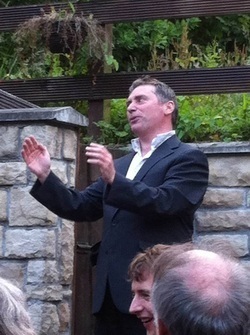 Rab begins to tell a story It was a superb evening. Huge thanks to Fionnuala, the staff of the Cottage Bar, Colours Fringe Festival, Galway Festival Radio and to everybody who came along to support me and Marina.
Rab begins to tell a story It was a superb evening. Huge thanks to Fionnuala, the staff of the Cottage Bar, Colours Fringe Festival, Galway Festival Radio and to everybody who came along to support me and Marina.
These photos were taken by James Harrold, the Arts Officer of Galway City. If anybody else has pictures or video clips please send me a copy. I'm sure you will all enjoy the book. Remember to post up your reviews and to tell all your friends
Cheers!
Rab
 Fionnuala declaims... The rain and mist that had been hanging around all week cleared up. It was cool but beautiful summer evening. More men, women and children joined us but the beer garden was big enough for us all. Fionnuala Gallagher began the evening by giving a wonderful talk about being a witness to the frantic creation of the book and its illustrations
Fionnuala declaims... The rain and mist that had been hanging around all week cleared up. It was cool but beautiful summer evening. More men, women and children joined us but the beer garden was big enough for us all. Fionnuala Gallagher began the evening by giving a wonderful talk about being a witness to the frantic creation of the book and its illustrations
 Rab introduces Marina Having been awoken by my boys at 4 in the morning I was borderline deranged with sleep deprivation by the time it came for me to get up and entertain. But after a quick stimulant (in the form of an apple) up i went and performed a mixture of reading, telling and improvisation. I remembered to introduce Marina to the crowd and managed not to get too distracted by a smoke grey cat that walked along the overhang of the beer garden.
Rab introduces Marina Having been awoken by my boys at 4 in the morning I was borderline deranged with sleep deprivation by the time it came for me to get up and entertain. But after a quick stimulant (in the form of an apple) up i went and performed a mixture of reading, telling and improvisation. I remembered to introduce Marina to the crowd and managed not to get too distracted by a smoke grey cat that walked along the overhang of the beer garden.After the show Galway Festival Radio interviewed:
James the director of Colours Fringe Festival, who spoke about my writing; Fionnuala Gallagher who wrote the opening speech for the night; and myself.
 Rab begins to tell a story It was a superb evening. Huge thanks to Fionnuala, the staff of the Cottage Bar, Colours Fringe Festival, Galway Festival Radio and to everybody who came along to support me and Marina.
Rab begins to tell a story It was a superb evening. Huge thanks to Fionnuala, the staff of the Cottage Bar, Colours Fringe Festival, Galway Festival Radio and to everybody who came along to support me and Marina.These photos were taken by James Harrold, the Arts Officer of Galway City. If anybody else has pictures or video clips please send me a copy. I'm sure you will all enjoy the book. Remember to post up your reviews and to tell all your friends
Cheers!
Rab
Published on July 08, 2013 07:22
July 6, 2013
Callisto - a poem
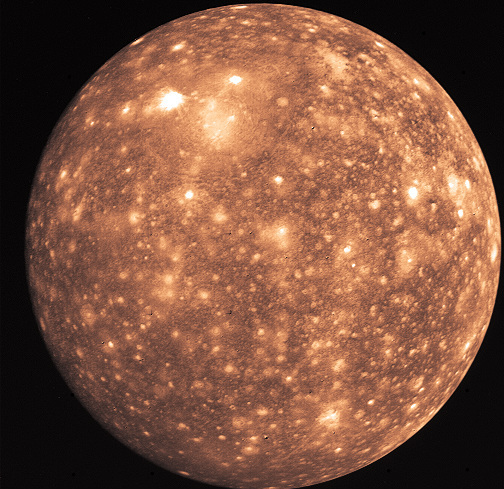 This poem was written after looking at Jupiter and her inner moons through the telescope I was given by my wife for my 40th birthday. As I looked at the moons I found myself thinking of all the friends I had lost, in particular one very close friend Sandie Craigie...
This poem was written after looking at Jupiter and her inner moons through the telescope I was given by my wife for my 40th birthday. As I looked at the moons I found myself thinking of all the friends I had lost, in particular one very close friend Sandie Craigie... Callisto
imagine Callisto, thi sureness ae her form,
torn by thi velocity ae her dive
oan n oan inty absolute nuhhiness;
thi infinite freezing blankness ae thi Cosmos.
imagine thi thrill, thi joy, thi terror
ae her faw inty loss n discovery,
terrified yit kennin when extremis is met
n vanquished she needs ainly turn
n return tae thi heavens
watchin oour her,
thi math n thi melody n thi gravity
o Jupiter, Europa, Io, Ganymede;
thur bleezing iced spheres,
thur crackling, boomin, hissin atmospheres,
geein guidance, comfort, freedom
thru ilka tock n tick o eternity.
yit, imagine this:
Callisto et thi furthest streech
ae her courage n strength, her form bare seccins fae
being wrencht apairt by forces ayont her,
turns – triumphant! – tae her heavens yince mair
n sees ainly vast weesht blackness.
this yince happened tae me. in a blink
aw ma heavens, thur unco glitter n thur unco love,
thur kisses n bleary, beery nicotine wurds,
wur ripped forever fae mi.
yit thi cruel air kept moving thru ma lungs,
thi grun refused tae swally mi.
(For more of my poetry check out abstraction ,
where I am slowly adding twenty five years of poetry)
Published on July 06, 2013 02:34
May 30, 2013
Galway Bay Folk Tales - an introduction
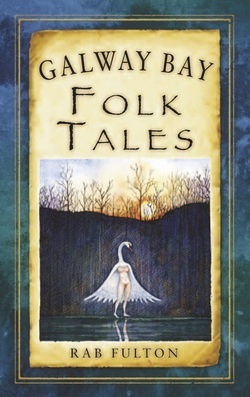 Galway Bay Folk Tales is my new book, in which I retell myths, folklore and urban legends connected with Galway Bay. The book is published by History Press Ireland in June and will be launched on 4th July at 8pm in The Cottage Bar as part of the Colours Fringe Festival.
Galway Bay Folk Tales is my new book, in which I retell myths, folklore and urban legends connected with Galway Bay. The book is published by History Press Ireland in June and will be launched on 4th July at 8pm in The Cottage Bar as part of the Colours Fringe Festival.What I set out to do was to create a book that would have the same energy and impact as my live performances. And what shapes my telling of stories is my belief that stories should never be passive – they must excite emotions, debate, disagreements and moments of breath taking wonder.
The reason that Irish stories survived for centuries and millennia is that they ignited such a spark in people that they felt compelled to pass those stories on and on down the generations. It was not enough then for me to simply retell stories from the west. I needed to step into them and make them as real and vivid as possible.
I also had to respect the fact that Galway and its people have never existed in isolation – events further afield have impacted on the lives and the tales of people here. So the focus of the stories is Galway Bay, but the stories move back and forth across Connaught and Munster, and even further away to exotic locations like Malaga in Spain and Enceladus, one of the moons of Saturn.
As well as local folk tales, myths and urban legends I wove in history, archaeology, theories on early settlements in Ireland, as well as philosophy, astro-physics and my own imagination. The book is also filled with wonderful illustrations by the artist Marina Wild. The result is a fast paced book filled with magic and adventures that covers a period of time from the birth of the universe right up to post Celtic Tiger Ireland. My hope is that the book will prove that the stories of the west are as relevant, inspiring and powerful today as they were when first told.
Extracts from the book that can be read online include:
Saint Patrick and the Island of Strangers
Fighting the Tuatha de Danann
Sources
Enjoy!
Published on May 30, 2013 02:39



